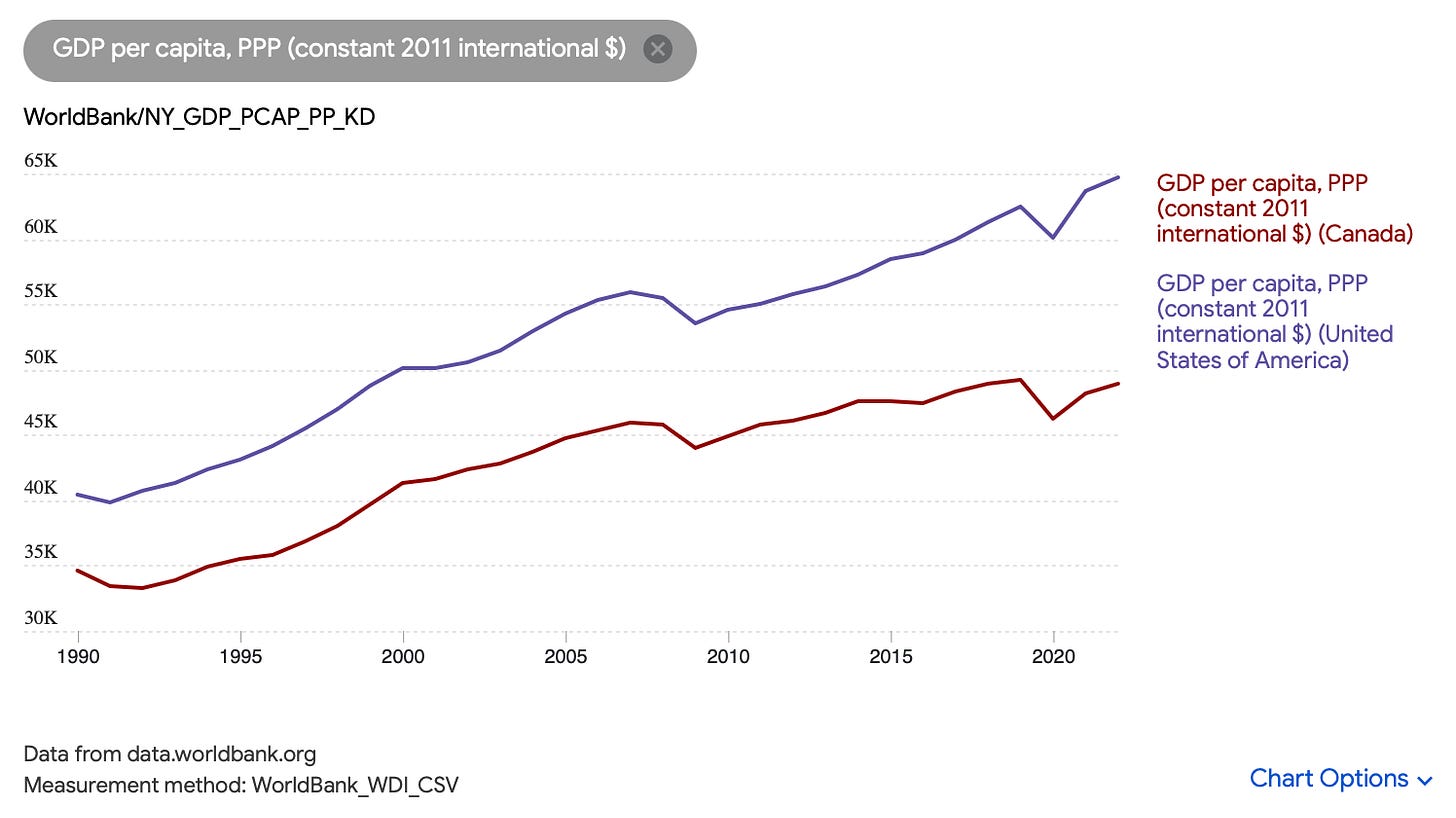Look, don’t read this! Go and read this piece on robotics by Semianalysis, and then come back for a coda. Seriously, go read it.
The inescapable message of their fascinating deep dive is that America is in deep trouble. It is simply not abreast of the technologies of the future. It doesn’t have the raw materials, the technical know-how, the installed base, or the coherent industrial leadership. Unless something radical happens, China is going to win this industry, which has the potential to transform all others.
Underlying all of this is one factor: scale. China has
a huge industrial base of potential customers for robots;
many firms all competing to build innovative robots;
a competitive ecosystem of suppliers of parts to build the robots;
the global heft to capture supply chains of rare earths, which are raw materials for robots.
All of these are ultimately a function of China’s sheer scale.
I wrote earlier about parsing Donald Trump’s domestic agenda:
and last week about his international policy:
To repeat myself, it is appalling: watching America now is like seeing a former pillar of the community who has become a bullying drunk. But to understand why it has happened, this economic context helps.
Calling for the annexation of Greenland, or for Canada to become the 51st state, is not just a piece of politics-as-entertainment, or the hothead talk of a loose cannon. I mean, in my best guess, Greenland might become part of the US and Canada almost certainly won’t. But there is a logic to both ideas! The US is in a desperate struggle for scale.
If domestically, the new authoritarianism is about a push for coherence — making a vast bureaucracy subject to the will of one person — then scale is the international counterpart of that idea. Scale and coherence are two sides of the same coin. I mean, geographically or demographically, the EU has scale, but it has minimal centralized decision-making. (For example, the EU has responded to US tariff threats with its own threats, but they are more in the, ah, “concepts of a plan” stage than actual policies: Brussels has drafted a proposal, which needs to be approved by the individual member states… this is a far cry from the Trump approach where you can announce a policy and cancel it the next day.) You have scale where you have a large area under one set of laws and one executive leadership. The latter is especially important in today’s era of renewed mercantilism.
And sure, in the abstract it makes sense! Objectively, the people of Greenland could be far better off in the US, if the US needs Greenland enough. There’s 50,000 of them! You could just pay them a million bucks each. And objectively, the case for Canada becoming part of the US is very similar to the case for free migration to the US, which most economists and neoliberals would love. The US is much richer and has been for at least thirty years. (Sidebar: not many people have noticed how similar the case for open borders is to the case for imperialism. But that’s a story for another day.) Most Canadians could get richer simply by moving. But if the US took them over, they wouldn’t even need to move! And this understates the benefits both countries would get from scale.

So, it’s completely logical… in the abstract. And I can see how it appeals to Donald Trump’s deal-making, empire-building nature. Of course, only one thing stands in the way of this grandiose plan, which is, oh, the whole of human reality. Starting with the fact that the Canadians don’t want to be part of the US, don’t feel like Americans, define themselves in opposition to Americans and regularly get annoyed by Americans (like, for instance, right now). Going on with the entire existing political system of Canada, with all its many vested interests in the status quo, which cannot be bought off because there are huge issues of credible commitment and uncertainty aversion. And then there’s the metric system. (And the snow. (And the bears.))
So yeah, it’s never going to happen, and it’s the kind of grand, Utopian scheme which is the exact reverse of real conservatism, and shows why the “right-wing progressivism” label fits Trump much better. Also interesting that he seemingly has little problem with allowing 40 million Canadians to immigrate to the US, many of whom were recent migrants to Canada from other parts of the world. (But maybe they were sending their best?)
But the driver is not Utopian hope but desperation. You can think of Trump’s foreign policy as America “gambling for resurrection” in a global contest for scale. And if you can’t annex foreign countries, the second best thing is to bend them to your will, especially if you’ve been paying for their defense for so long. Hence the sheer naked aggression, which I think goes beyond merely Trump’s famous “transactional” approach.
The tragedy is that it almost certainly won’t work. Reality stands in the way. Economically it might work — as others have suggested, Trump is not simply putting barriers up, rather he is using the threat of tariffs to knock down other countries’ barriers to trade. But in the competition for world mastery, China is probably too far ahead industrially, too prepared in terms of policy, and can make its own threats and offers geopolitically, not just as a supplier of goods to other countries, but now as a potential market for their raw material exports. So I expect we will indeed live to see When China Rules The World, in the title of Martin Jacques’ book.
And the other tragedy is that by making this play, by substituting naked aggression for the veiled, gentlemanly hegemony of the neoliberal era, America is besmirching its own values and staining its image — finally acting up to its tyrannical reputation in the mythology of the international Left. Perhaps hegemons are always show their worst side during their fall (think of the British imperial campaign against the Mau Mau). But it’s like a horrible, cheap parody of King Lear.
If you think this is interesting, why not become a paid subscriber? About half my posts are paid or partly paid. A subscription costs just £3.50/month, and yearly subscribers get a great big 40% discount, plus a free copy of my book.







